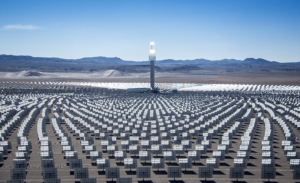Generating Renewable Energy in Lebanon
 Since 2019, Lebanon has been facing a crippling economic crisis. More than 80% of the population is estimated to live in poverty with inflation reaching 171% in 2022. While many problems have arisen from this crisis, perhaps none have impacted the Lebanese people as severely as the lack of electricity across the nation.
Since 2019, Lebanon has been facing a crippling economic crisis. More than 80% of the population is estimated to live in poverty with inflation reaching 171% in 2022. While many problems have arisen from this crisis, perhaps none have impacted the Lebanese people as severely as the lack of electricity across the nation.
The Lebanese Civil War, lasting from 1975 to 1990, damaged the country’s electricity supply. That, coupled with years of mismanagement, corruption and neglect, has led to Lebanon’s unreliable electricity system. It only provides two to three hours of electricity a day, leaving many to rely on diesel-powered generators.
Many have lost hope in the government to solve the problems of electricity shortages. However, a conscious investment in renewable energy in Lebanon may improve the country’s energy system and the livelihoods of its citizens.
Transitioning to Renewable Energy
Over the past 10 years, renewable energy and smart energy have been on the rise in Lebanon.
Lebanon’s government largely depends on oil plants and diesel generators, both of which are economically and environmentally unsustainable. However, in 2018, the Lebanese government adopted a target to obtain 30% of its energy from renewables by 2030.
According to the Lebanese Center for Energy Conservation, “Lebanon went from generating zero solar power in 2010 to having 90 megawatts of solar capacity in 2020.” There are now more than 800 registered solar companies operating in Lebanon, from small household projects to university campuses. With over 300 days of sunshine, renewable energy has a high chance to thrive in Lebanon and provides environmental benefits.
Solar panels are one of the many renewable energy sources that can provide a reliable source of electricity to Lebanese citizens. The Lebanese Foundation for Renewable Energy works to shift focus from fossil fuels to wind and hydro in addition to solar.
The Impact of Renewable Energy on Poverty
The lack of reliable electricity in Lebanon pushes people into poverty. This occurs because an electrical drought impedes access to necessities like water and food.
According to Human Rights Watch (HRW), the average Lebanese household uses 44% of their monthly income for generator bills. For homes in the bottom quintile, generator bills constitute 88% of their monthly income. This leaves poor families unable to make ends meet and forced to choose between electricity or food.
Furthermore, in a survey that HRW conducted, they found that “nine out of ten households said the cost of electricity affected their ability to pay for other essential services.”
The lack of electricity has a direct effect on the standard of living in Lebanon. The electricity crisis in Lebanon also leaves many unable to carry out day-to-day tasks like cooking or participating in work or school activities. This is where renewable energy can be utilized to ease this wealth disparity and offer all Lebanese families the ability to more reliable sources of energy like solar panels.
Efforts to Increase Renewable Energy in Lebanon
As the crisis still plagues Lebanon’s economy and society, renewable energy proves a hopeful long-term solution in turning around Lebanon’s energy sector.
Efforts to improve Lebanon’s energy system include the United Nations Development Programme (UNDP). UNDP has been working alongside the Lebanese government to supply and promote private sector investment in renewable energy sources. This ambitious goal proves how the Lebanese government can use renewable energy to help lift people out of poverty.
In addition, the United States Agency for International Development announced its plan to invest $20 million to help Lebanon.
On June 23, 2023, the United Nations International Children’s Emergency Fund (UNICEF) and the Lebanese Ministry of Public Health successfully revamped 150 primary healthcare centers. They now fully rely on solar energy, ensuring access to essential public health services and immunization. The project was completed in 13 weeks so as to provide crucial support to families amidst the ongoing electricity crisis in Lebanon.
Currently, UNICEF is assessing the feasibility of solarising over 300 dispensaries and widening support to more families.
Looking forward
The future of renewable energy in Lebanon holds huge potential. There are hopeful solutions to Lebanon’s energy and electricity crisis and reducing poverty. Lebanon’s advantageous climate and innovative projects, and domestic and international support prove that the goal of obtaining 30% of its energy from renewables by 2030 is possible.
However, there needs to be more government focus on relieving poverty through renewable energy in Lebanon, as well as increased international support and funding initiatives for this to be an achievable goal.
– Amber Hamed
Photo: Flickr
